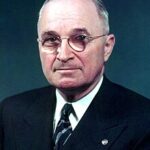President Harry Truman’s recognition of Israel remains one of history’s most controversial foreign policy decisions. The Truman recognition Israel policy emerged just minutes after Israel declared independence on May 14, 1948.
The Hasty Decision
Truman announced U.S. recognition at 6:11 PM, merely eleven minutes after Ben-Gurion’s declaration. State Department officials strongly opposed immediate recognition. Secretary of State George Marshall threatened to vote against Truman in the upcoming election. The decision bypassed traditional diplomatic channels and expert analysis. 📊
Political Pressures Behind Recognition
Domestic political considerations heavily influenced Truman’s choice. Jewish-American voters represented a crucial voting bloc in key swing states. Truman faced pressure from advisors like Clark Clifford who emphasized electoral implications. The president dismissed State Department warnings about regional destabilization. Critics argued political calculations trumped strategic national interests. ⚠️
State Department Opposition
Career diplomats predicted the decision would inflame Arab-Israeli tensions permanently. They warned of potential oil embargoes from Arab nations. Military advisors feared increased Soviet influence in the region. The Truman recognition Israel policy contradicted months of careful diplomatic planning.
Impact:
Truman’s recognition of Israel triggered immediate and lasting regional consequences that continue today. The decision fundamentally altered Middle East dynamics and America’s role in the region.
Immediate Regional Destabilization
Arab nations launched coordinated military attacks against Israel within hours. Egypt, Jordan, Syria, Lebanon, and Iraq declared war simultaneously. The first Arab-Israeli War displaced hundreds of thousands of Palestinian refugees. Regional tensions escalated beyond State Department predictions. 🔥
Long-term Diplomatic Consequences
The Truman recognition Israel policy created permanent Arab hostility toward America. Oil-producing nations began using petroleum as a political weapon. Soviet influence expanded rapidly throughout the Arab world. America lost significant diplomatic leverage with traditional Middle Eastern allies. Multiple decades of regional conflicts followed directly from this decision. 🌍
Strategic Policy Failures
State Department experts’ predictions proved remarkably accurate over subsequent decades. Regional instability became a permanent feature of American foreign policy challenges. The decision established a precedent of domestic politics overriding diplomatic expertise. Military interventions and proxy wars became routine American commitments. Peace negotiations required continuous American mediation and financial commitments. 📉
